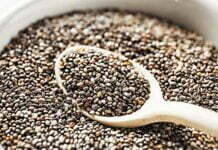High blood pressure, also known as hypertension, is a common condition in which the force of blood against the walls of the arteries is too high. If left untreated, it can lead to serious health problems such as heart disease, stroke, and kidney failure. Fortunately, there are several steps you can take to manage high blood pressure. Here are some tips:

How to Manage High Blood Pressure or Hypertension
- Check your blood pressure regularly: It’s important to monitor your blood pressure regularly to ensure that it is within the healthy range. You can do this at home with a blood pressure monitor or at your doctor’s office. If your blood pressure is consistently high, talk to your doctor about treatment options.
- Maintain a healthy weight: Being overweight or obese can increase your risk of developing high blood pressure. By losing weight and maintaining a healthy weight, you can reduce your risk and manage your blood pressure.
- Exercise regularly: Regular physical activity can help lower your blood pressure and reduce your risk of developing heart disease. Aim for at least 30 minutes of moderate-intensity exercise most days of the week. Examples include brisk walking, jogging, cycling, swimming, and dancing.
- Eat a healthy diet: A healthy diet can help lower your blood pressure and reduce your risk of developing heart disease. Aim to eat a diet that is rich in fruits, vegetables, whole grains, and lean protein sources. Limit your intake of saturated and trans fats, sodium, and added sugars.
- Reduce your sodium intake: Consuming too much sodium can raise your blood pressure. Aim to consume no more than 2,300 milligrams of sodium per day. If you have high blood pressure, your doctor may recommend an even lower sodium intake.
- Limit your alcohol intake: Drinking too much alcohol can raise your blood pressure. Men should aim to consume no more than two drinks per day, and women should aim for no more than one drink per day.
- Quit smoking: Smoking can damage your blood vessels and raise your blood pressure. Quitting smoking can help lower your blood pressure and reduce your risk of developing heart disease.
- Manage stress: Chronic stress can contribute to high blood pressure. Find ways to manage your stress, such as meditation, yoga, or deep breathing exercises.
- Take medication as prescribed: If your doctor has prescribed medication to manage your high blood pressure, it’s important to take it as prescribed. Don’t skip doses or stop taking your medication without talking to your doctor first.
In conclusion, managing high blood pressure requires a combination of lifestyle changes and, in some cases, medication. By making these changes and working with your doctor, you can reduce your risk of developing serious health problems and improve your overall health and well-being.













